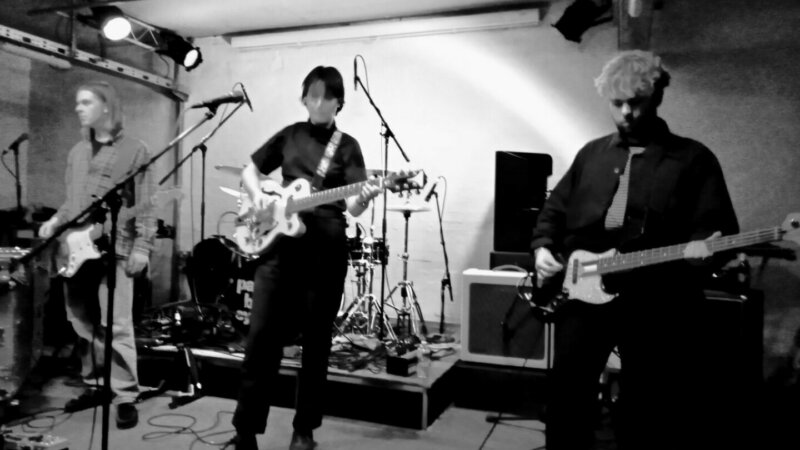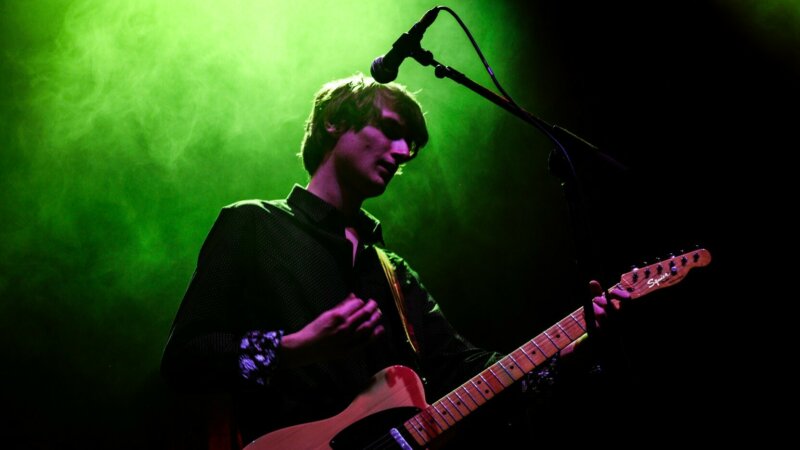Sound
Sexism and Music.
A talking point on everybody's lips in recent weeks has been new plans to block access to pornography on the internet, supposedly as a further measure to stamp out the objectification of women but also as a way to protect children from damaging material and harmful ideas. While these laws threaten to undermine personal liberty in a big way, they have at least succeeded in bringing the debate about what constitutes an acceptable attitude towards women to the fore.
While I do not welcome prohibition as a way to change attitudes, I do welcome the opportunity to actually engage with how women are viewed in the areas I am most passionate about, particularly in music. Although most alternative music claims to be inclusive and egalitarian, there is still much work to be done to stamp out sexism once and for all. Fans of dance music often speak with pride about how open and warm their respective scenes are, but is this really the case? Has the popularity of rave culture really brought about a new way of viewing women in our society or are people just patting themselves on the back for being slightly less sexist than others?
I will take it as red that there is no reason why men and women should have different capacities to enjoy, make or discuss music, but the attitudes of the music industry and certain artists make it clear that these ideals are only theoretical and have not truly been embraced by the majority of the community. Both sexes have excelled as label managers, DJs, producers and promoters for many years. Parties in Sheffield are populated by as many different genders as there are terms for and people have always seemed to get on very well. But while this may be true, a newcomer to the music would be hard pressed to make that assumption based on online content alone, where, after only the quickest of looks, one stumbles across images of half-dressed, suggestively posing women.
DJ and label manager Ben UFO recently spoke of the “American apparelisation of dance music”, referring to the borderline pornographic images that accompany a considerable amount of musical uploads on Youtube. This is something that permeates all forms of music. Pop has long featured scantily-clad, sweaty bodies in its music videos as a blatant ploy to increase sales and appeal. But while these things are not so common in less mainstream genres, they are certainly not free from them. Anyone who uses social networks and video uploading sites to listen to music will be familiar with the quantity of suggestive pictures used to accompany uploads. I think the cost of this technique is somewhat sinister, drawing the focal point away from the music and the culture that surrounds it and towards eye candy. Modern house, hip hop and garage music are all full of degrading references to women in vocal samples, song titles and lyrics, and as a fan of the music, I fail to see how this material reinforces the idea that dance music is inclusive and unprejudiced. We wouldn’t tolerate racism or homophobia in our dance music, so why is this any different?
Mr Cameron has called for an end to default access to online pornography but has failed to answer to the real issue; that pornography permeates almost every area of our society. Facebook may have no trouble banning educational images of vaginas intended to help women understand their bodies, but it falls short at taking a stand against pages dedicated to large bottoms or underage girls getting drunk in nightclubs. It is a sign of ultimate hubris when, under these circumstances, people claim our society isn't sexist.
Dance music was born and nurtured in counter culture. Individualism and prejudice were to be cast aside in favour of an environment where people could be themselves, whatever that meant. The reality is a situation where gender roles are at the very epicentre of the culture. Not only is some modern dance music inherently sexist in content, but it is also promoted in a way that plays heavily on stereotypes and marketplace categorisation of a style no less worthy of disgust than the page three stunners of The Sun.
Recently, techno producer and DJ Nina Kraviz came under heavy criticism for being excessively sexual in her DJ sets. I was curious about what behaviour she exhibited that could be perceived in this way, so I watched her Boiler Room set where she mixes for an hour and a quarter in Berlin and was surprised at the kind behaviour that some people found offensive. While she definitely enjoys her job and dances throughout her set, she is not dressed any differently to the other women at the event. The fact that she is an attractive woman means that she obviously looks alluring, but her behaviour is no more sexual than many male DJs who escape this kind of scrutiny. She is a very capable DJ and is obviously passionate about her work, so what makes the fact that she is an attractive woman unacceptable? Even if she intends to be sexual, why is she not afforded the same benefit of doubt that most other DJs get? I've seen Sven Vath, the legendary techno DJ and drug gland, dancing topless behind the decks before, and nobody went any further than to laugh and shrug it off.
I would truly love for us to move on from this stasis. There shouldn’t be time or space for any prejudice in society and by openly criticising the objectification of women online and by giving female DJs a break, maybe we can start to bring the focus back to what really matters. )





